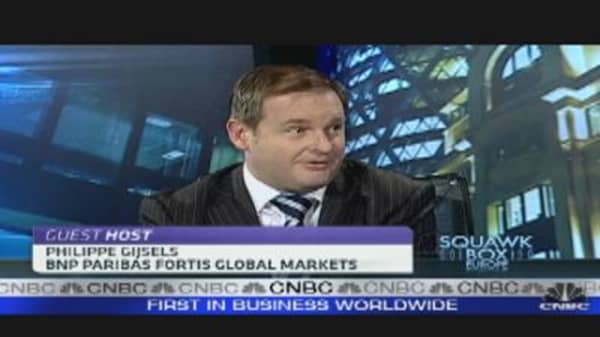Forget Twitter and Facebook. Forget outspoken Google Exec Wael Ghonim. If you want to know who should get credit for the sudden surge towards democracy in the Middle East, send a ‘Thank You’ note to Ben Bernanke.
It should be written like this:
“Dear Ben,
Even though your real intention was to keep long-term interest rates low (sorry that didn’t work out), your QE2 plan has accomplished in 6 months what decades of U.S. foreign policy couldn’t: the blossoming of Democracy across the Arab world.
Here’s how you did it:
Since you hinted at a $600 billion bond-buying program in August, the price of wheat has climbed as much as 28 percent. The price of corn, up 60 percent. Inflation in the developing world has spread like wild fire.
And while high unemployment and political oppression have always been a feature of life in Tunisia, Egypt and Libya, a worldwide spike in the price of food was something not even Muammar Gaddafi could engineer. It turned out to be the straw (of wheat) that broke the camel’s back. So thank you.”
To many outside observers, the throngs of protests in Tahrir Square in late January seemed to come from out of nowhere. But the timing wasn’t so random, according to Philippe Gijsels, Head of Research at BNP Paribas Fortis Bank. “It’s very important to note what the catalyst has been: food inflation. Because, these governments have been in place 20, 30 years so it’s quite remarkable this is happening today,” said Gijsels in an interview with CNBC’s Squawk Box Europe.
If you want proof that inflation alone may have triggered region-wide protests for Democracy, remember how Saudi Arabia’s Kind Abdullah managed to quell any threat of uprisings in his country: he fought fire with fire.
Or, more specifically, fought inflation with social welfare spending.
The King showered $36 Billion worth of interest-free home loans, education subsidies, unemployment assistance and debt relief on his subjects, and they’ve been quite calm ever since.
But before you nominate Bernanke for the Nobel Peace Prize, it’s important to focus on the true economic cost of global inflation—and not its unintended geopolitical side effects.
“The price of of the inflation we’re exporting is being disproportionately paid by emerging economies,” says Peter Schiff of Euro Pacific Capital, and a noted Fed critic. “In countries where per capita income is $1000 per year, a 30 percent rise in the price of food is devastating. QE2 has has been a destructive force and we haven’t seen the full brunt of it yet.”
Follow Strategy Session on Twitter: @CNBCStrategy
Watch CNBC's "The Strategy Session" weekdays at Noon ET.




